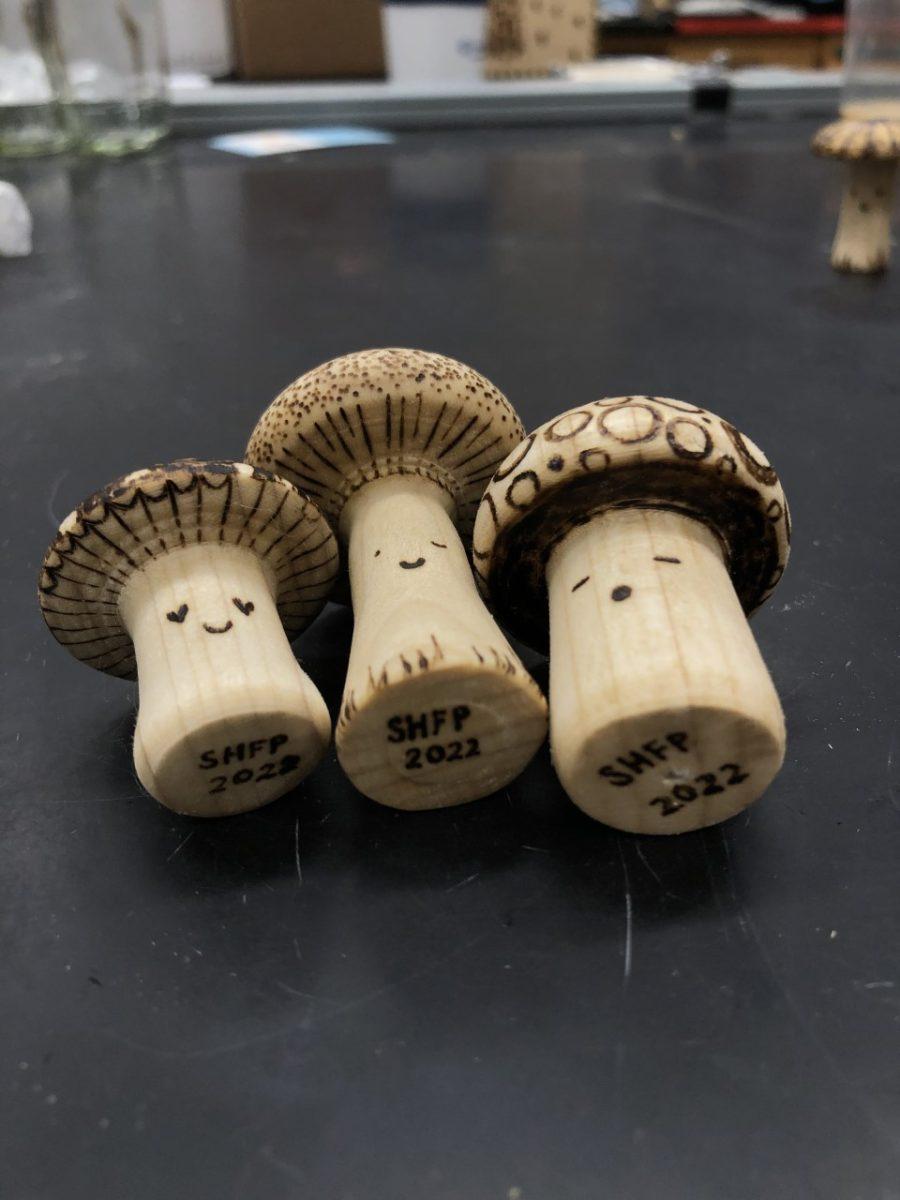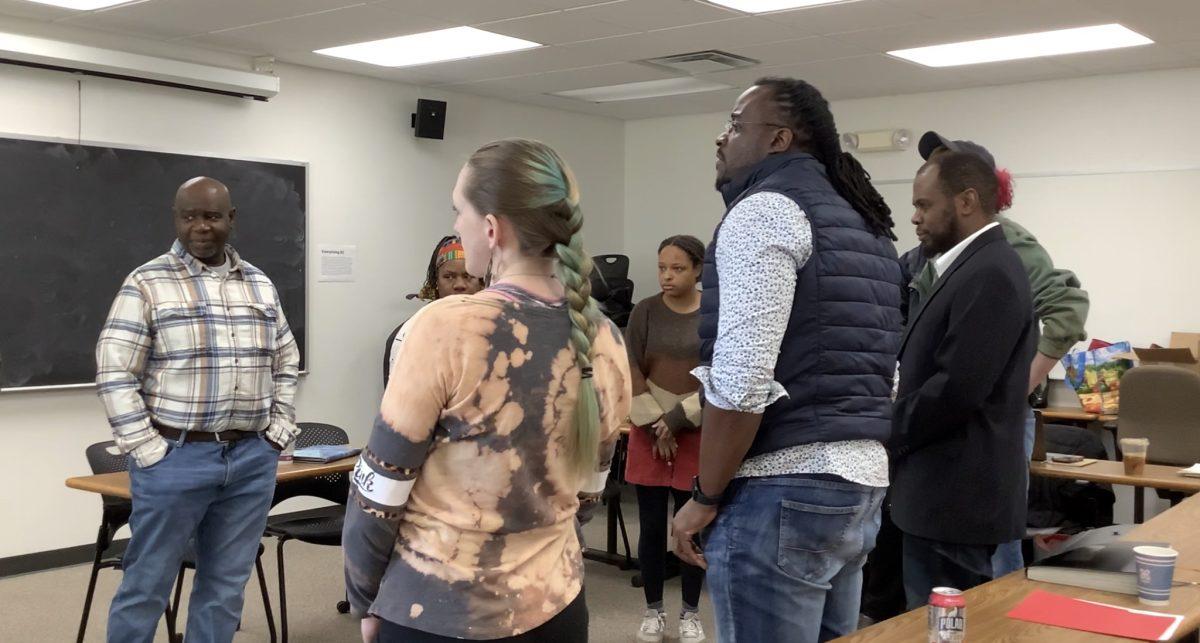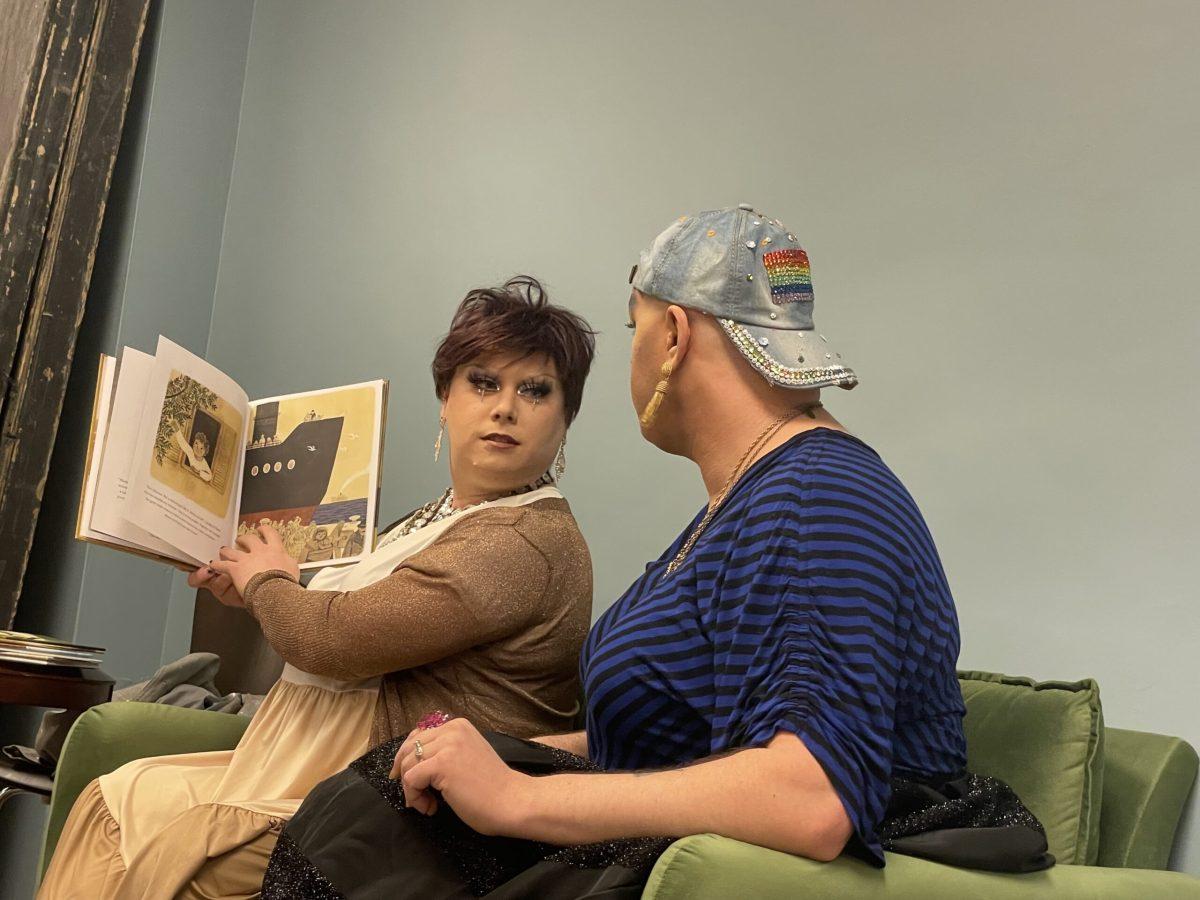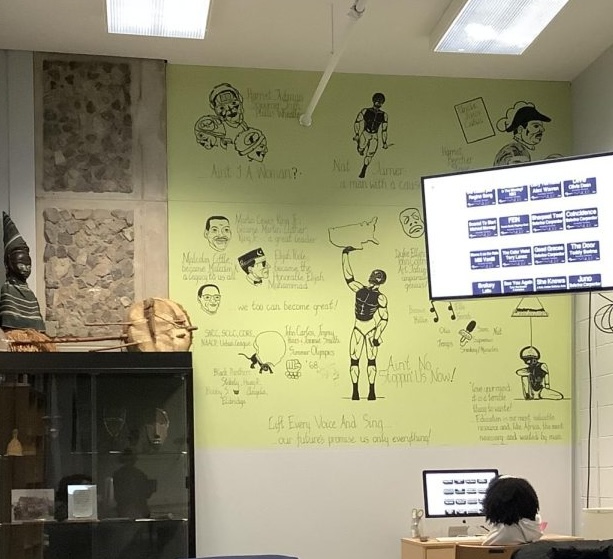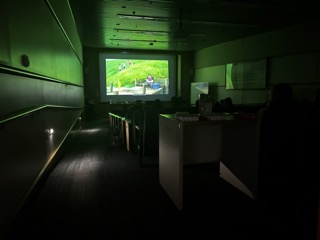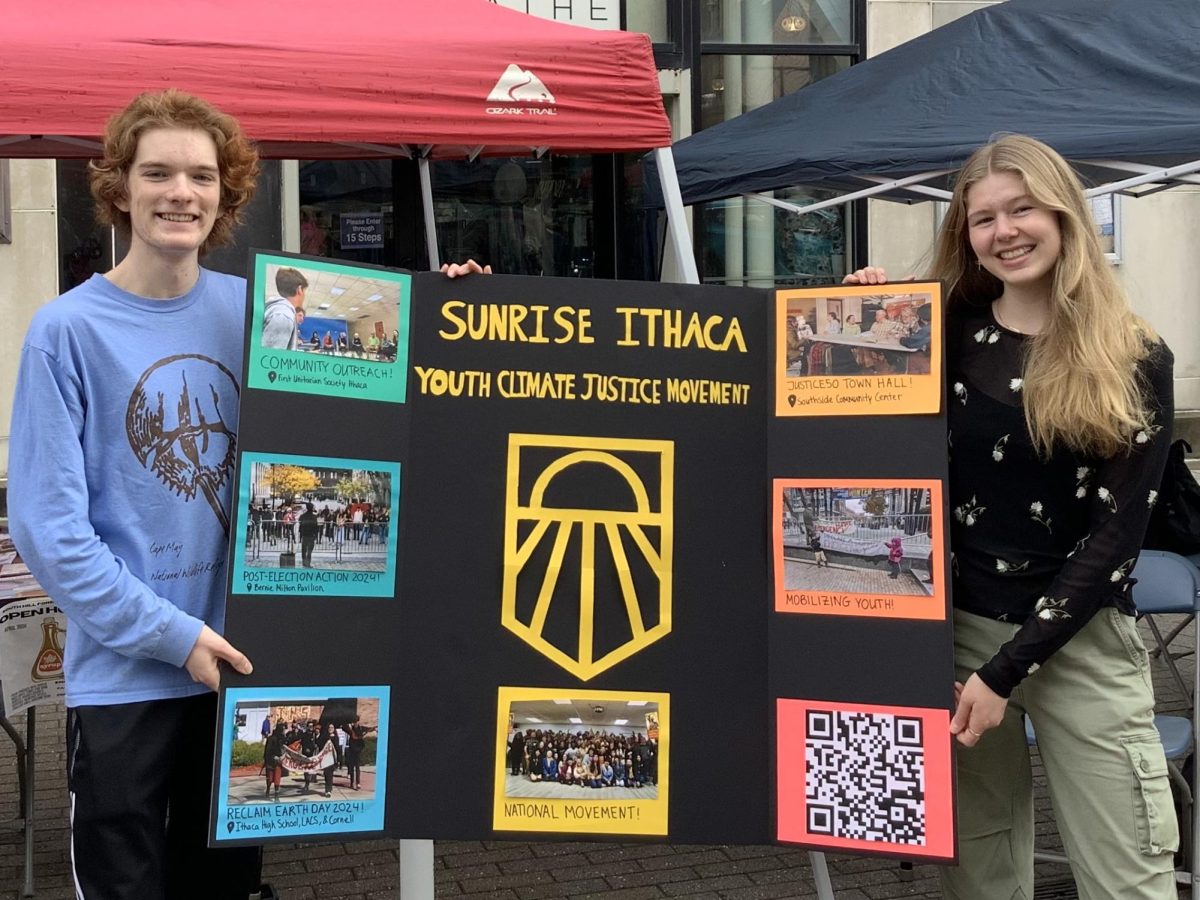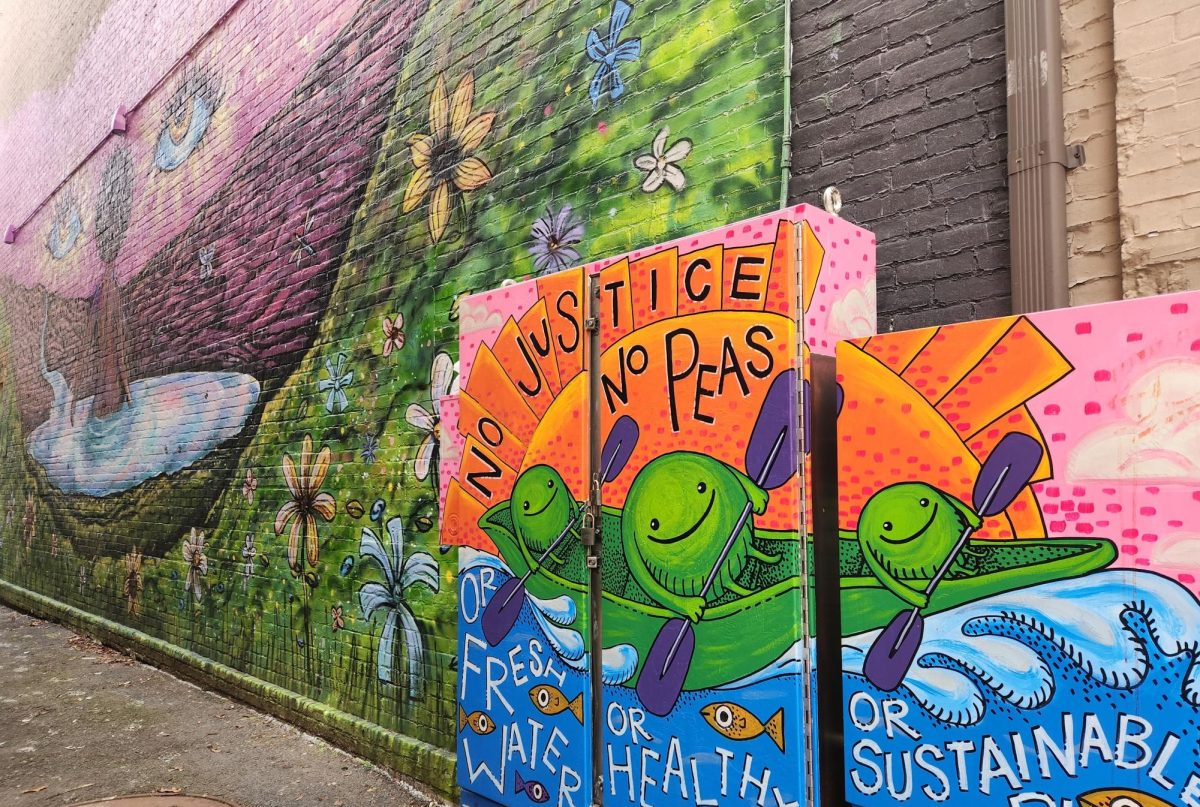Ithaca College students Nandini Agarwal and Abigail Aitken never imagined their sustainable business class project would garner the popularity and success it had.
Recent student success
The pair collaborated in the “Farming the Forest” class last fall and created a new product, small wooden mushroom figurines.
“This class is very much about the research and development and part of that is about being aware of other products we can make and having fun with it,” said Agarwal.

Agarwal and Aitken are now teaching assistants for the class, and they have been holding workshops to train current students on how to make their product.
“One of the great things about the class and the organization is that there are so many different products that students have made so it kind of cycles through,” said Aitken.
Ten years ago, Professor Jason Hamilton created the course where the small business, South Hill Forest Products, has grown with student ideas and experiential learning.
The figurines saw an overwhelming success in sales during last semester’s open houses, where South Hill Forest Products sells over half of their inventory, according to Hamilton.
Business sustainability
Hamilton said the course focuses on different student products each semester, with students always suggesting ideas for new products. In the past they have made items such as maple and hickory syrup, carvings, candles, medicinal salves, jewelry and more.
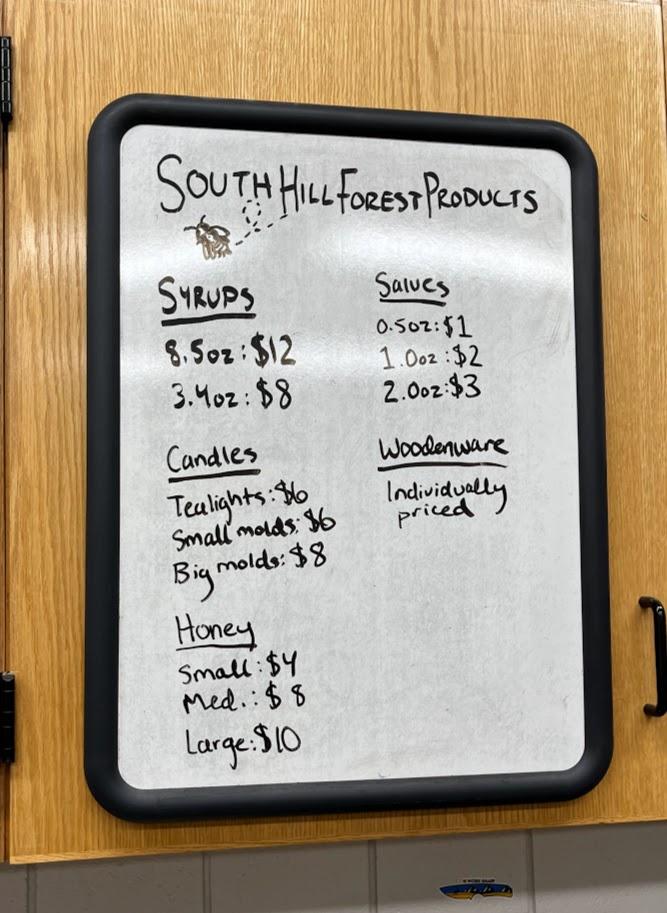
“Learning all of these different ways to make money off the woods and maintain the ecosystem’s integrity is one of the main points of the class,” said Hamilton.
The foundational value of each product they make is that it must be a non-timber forest product, this means using things that the forest gives you while not damaging it.
Hamilton wants to use South Hill Forest Products to foster local ecological knowledge and connect generations of people to the land surrounding them to stop shifting baseline syndrome.
“Shifting baseline syndrome means that as the environment gets degraded, every generation accepts the current conditions as normal,” Hamilton said. “If you always accept your current conditions as normal, then you can’t stop long-term multigenerational environmental degradation.”

Promoting student ideas and success
Hamilton sees the class as true experiential learning, where there are real consequences but room for learning and education.
“The students come out of the class with this increased sense of self-efficacy and self-confidence because they have been running a company and using tools, and they can do it,” Hamilton said.
When he first started the class, there was nothing like it in the country. The idea to begin the class was a combination of two Ithaca College students’ desire to make maple syrup and Hamilton’s non-timber forest product education.
The two students came to Hamilton with their idea, having searched through the Ithaca College natural lands and stumbling across what they now call “the sugar bush”. They produced syrup with the help of an older community member for about a year prior to proposing the idea to Hamilton.

Current students working to run a sap boil, the process by which they make maple syrup. (Photo by Maddy Vogel/Ithaca Week)
Student ideas and exploration have been the foundation of South Hill Forest Products from the very beginning, and they continue to flourish sustainably, said Hamilton.
“I really want to look at more things we can be doing because there is so much out there, and it will really set us apart especially as a business that is college student run,” said Agarwal.

